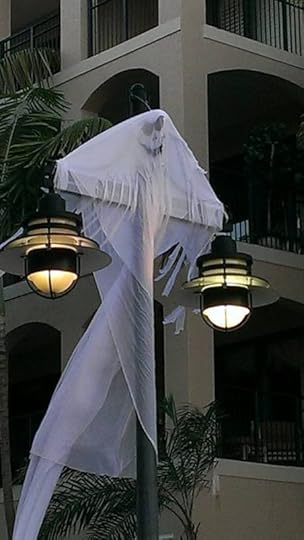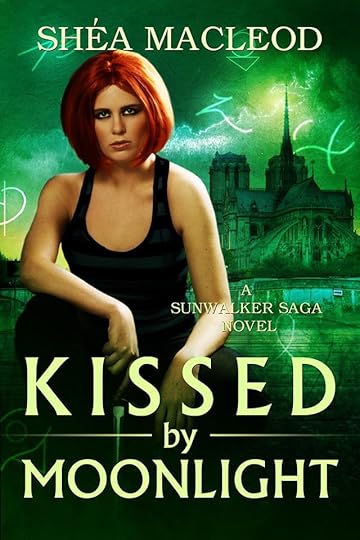Stephanie Abbott's Blog, page 11
November 6, 2013
Marriage Can Be Murder: Dr. Benjamin Bones Mysteries, Book #1
All right. I don’t want you to think I am not working on Lord &Lady Hetheridge #4, Black & Blue. I am, and will even have a cover reveal soon.
But here’s a bit of the new series. And some background.
It begins in September 1939, just before Britain is drawn into the second world war with Germany. The protagonist is Dr. Benjamin Bones, a young physician who is hoping to revive his unhappy marriage. Like many professionals, the war effort has taken him far from home, to a village not far from Plymouth called Birdswing-on-Sward. It’s an eccentric little place, filled with patriots ready to do their part to depose Hitler. Dr. Ben isn’t certain he belongs there. But the villagers have other ideas…
Chapter One: A New Start
29 August 1939
Things will get worse before they get better, Dr. Benjamin Bones told himself, as much by reflex as conviction. The phrase was a maxim his grandfather often spouted, particularly at grim moments, such as funerals or elections that ended in a Tory victory. A firebrand reformer and socialist, Granddad had printed his own political tracts, handing them out on street corners until his mortified wife arrived to make a citizen’s arrest. Of all the futures Granddad had imagined for his only grandson, marrying into a highly respectable Tory family like the Eubanks wasn’t one of them. And if Granddad, cold in his grave these last five years, had been alive to learn of Ben’s marital troubles, the old agitator would have received such scandalous news—the possibility of the Bones family’s first-ever divorce—one way: by cracking open a bottle of Glenlivet.
But Nana would collapse if she heard. Perhaps join Granddad six feet under, Ben thought. Mum wouldn’t say much, just cry into her pinafore. But Dad might turn me out of the house. After finishing his one-thousandth speech about men upholding their obligations, that is.
It was a speech Ben knew well. He’d delivered it to himself, in his father’s voice, every day for the last six months. Divorce was dishonorable. Divorce was shameful. Divorce was a lifelong black mark that would haunt his future prospects forever. A divorced man was, after all, a cad, a libertine, or at least weak-willed, unable to keep his house in order. And a divorced woman? With the exception of cinema stars, who existed in some flashbulb-popping alternate galaxy, a divorced woman was damaged goods. Even back home in cosmopolitan London, Penny would be called a reject and presumed a slut. After a suitable interval, Ben would have the opportunity to win back the confidence of his community and remarry. Penny would not.
Unless Albie follows her to Devon and sweeps her off her feet ….
But no. Ben wouldn’t allow himself to think that way. For one thing, Albie Sanderson, married with two small children, enjoyed a factory supervisor job supplied by his father-in-law. Ben, who’d disliked Albie even before unkind rumors started to fly, had no trouble imagining his rival abandoning the wife and kiddies. But the manufacturing job Albie’s father-in-law provided was a “reserved occupation,” immune from conscription. Even if Albie truly loved Penny, which Ben seriously doubted, what were the odds of him casting aside a guarantee of never being shipped overseas, on the eve of near-certain war? Miniscule, at best.
In the firmest possible tones, Ben had informed Penny he didn’t want to know if the whispers about her and Albie were true. Easier to forgive, he’d decided, when one wasn’t obliged to forget. Particularly the details of such a very personal transgression. Besides, if Penny and Albie had been having an affair (and most days Ben felt certain they had), his own hands weren’t spotless. True, he hadn’t broken his wedding vows, or even wanted to. But he’d given his burgeoning medical practice the bulk of his attention, reserving his deepest passion and enthusiasm for his patients. He’d worked late when he could have gone home, made routine house calls instead of taking Penny out, and read medical journals into the wee hours instead of joining her in bed by midnight. In other words, he’d done his best to live like a bachelor, rather than face the wife who’d become a stranger.
People make mistakes, Ben told himself in his father’s pedantic, slightly wheezy tone. Marry in haste, repent in leisure. Many an ill-suited union has splintered on the rocks of that first year. And many a couple discovers romantic love has flown, if it ever existed at all. But marriage isn’t about pleasure or self-indulgence. It’s about duty. That’s why it arrives clothed in solemn vows and prayer. To signal the grave nature of the commitment you undertook when you repeated, ‘Till death us do part.’
How much of that speech Ben believed varied from minute to minute, but his old dad was right on one count: people made mistakes. Ben, who’d fallen for Penny during his second year of medical training, had proposed marriage on their third date and been accepted on the sixth. Equating fascination with love, he’d been over the moon, unable to believe his luck. Barely five foot-eight and compactly built, young Ben had never quite understood how his wide blue eyes, mussed brown hair, and lopsided smile went over with the female set. He’d often misread tentative feminine advances, taking crushes for mere kindness and discarding dozens of opportunities without the slightest clue.
Then came that evening on the quad.
Since three o’clock, Ben had been studying beneath a hornbeam tree. Gradually the sun disappeared behind low hills, leaving fanlike diluted brush sweeps of orange, purple, and red in its wake. Ben wouldn’t have noticed, except for the gathering gloom; even with his youthful vision, only a scrap of reading light remained. Overhead, the hornbeam sighed, releasing a fresh volley of dry yellow leaves.
Ben pulled his nose out of Gray’s Anatomy. Looking up, he found Penny standing over him, dressed in a light blue frock and matching sweater. Her expression, slightly scornful, set off her prettiness, transforming it into near-beauty. The light blue frock had nipped in at all the right places, revealing generous curves and slender, perfect legs.
“That bird sitting by the fountain,” Penny said, indicating another young woman several yards away, “called you a bloodless bookworm. I didn’t appreciate her cheek, so I told her you were my boyfriend. Not to mention the best kisser on campus. So stow that doorstop, why don’t you, before she decides I’m a bald faced liar?”
Ben had goggled at her. Hours later, it struck him that his ideal reply would have been, “Sure. And while I’m about it, why don’t I buy you a drink?” But he’d been too green, too steeped in academic concerns, for the words to cross his mind. In those days, asking out a girl like Penny had seemed a treacherous, profoundly delicate business, like international espionage or defusing bombs. So he’d only dropped his textbook clumsily and said,
“Terribly sorry. Must be some mistake. Have we, er, met?”
“Of course we have. Just now, silly.” Penny had poked Ben in the chest, left of his heart. “I’m Penelope Eubanks. You’re Benjamin Bones. I’ve been watching on you for ages, working up the nerve to say hello.” This last statement was offered so blithely, she must have discovered the requisite nerve in triplicate. Before he could manage more than a weak, disbelieving chuckle, she glanced over her shoulder. “Oh! Little Miss Fountain is frowning. Quick, pretend to kiss me.”
With enviable grace, she eased down beside him, seating herself on a hornbeam root as comfortably as if it were a satin pillow. Pressing both palms against the hornbeam’s smooth, bluish-green bark, she brought her face in, near enough for him to inhale her sweet breath.
Those perfectly painted red lips didn’t touch his. Still, they hovered so close, he felt their heat, experiencing the transfer as vividly as if something far more intimate had passed between them. Later, Ben would compare the profundity of that faux-kiss to the first time he tasted a gin and tonic: bright and tart, like juniper buds submerged in snow, a little bit wrong and all the more delicious for it.
Likening Penny to a cocktail was fitting. In those days, everything about her was intoxicating. Her blonde curls, smart frocks, black patent heels and tortoiseshell hair combs. The way she smoked unapologetically, holding the fags between her fingers like a man, declaring the usual long black holder too “twee” as she sent fragrant plumes in his direction. Her red lipstick called Carnage, the whiff of Sous le Vent behind her ears, the way she laughed off a snag in her silk stockings while other girls fretted or moaned.
He’d loved her. And if it wasn’t love, it was too close for Ben, just twenty three years old, to know the difference.
Penny hadn’t wanted a long engagement, or even a society wedding, which suited Ben just fine. Less than a month after their “understanding,” they’d eloped to Greta Green, like wayward lovers in a Jane Austen novel. Scotland’s “anvil priests” had begun requiring twenty-one days of residence prior to nuptials, but Ben didn’t chafe under the restriction. Especially since Penny, content with no engagement ring and only a simple gold band to come, suggested they consider themselves as good as married.
As good as married? Ben had meant it with all his heart. In fact, since his life experience was mostly limited to academic triumphs, he’d embarked on his honeymoon almost as an innocent.
That holiday in Scotland was everything he’d hoped for. When he and Penny returned to England, they were congratulated all around, even by her parents, stiff and pale yet surprisingly forgiving. Much was made over the romance of it all—an MP’s daughter and a promising young physician, too wildly in love to wait. A house was found for them to occupy while Ben completed his medical training, a year’s rent paid by Mr. Eubanks as a wedding present. In that house, a half-timbered mock-Tudor with a stained-glass rose on the front door, Ben and Penny began to know one another. Which was how the trouble began.
It will get worse before it gets better, Ben told himself again. But getting better will take a long time, if I insist on dredging up the past.
He stole a glance across the car seat at Penny. Only three feet of leather upholstery stretched between them, but the distance felt greater. She was curled against the door of their Austin Ten-Four, coat rolled up to cushion her cheek. Last night, well aware they’d be alone together in the automobile for hours, she’d stayed up almost till dawn, playing Guy Lombardo records on the gramophone and drinking with girlfriends from her brief matriculation at a Swiss young ladies academy. Feeling shut out by the hen chatter and irritated by the music, which was far from his taste, Ben had gone to bed early, plugging his ears with cotton wool so he could sleep. Now he understood her plan, to sleep the day away rather than sit beside him in what amounted to a wheeled cell, with nothing to do but stare at the moving English countryside and answer “yes” or “no” when he tried to initiate a conversation.
I should be grateful she doesn’t want a row, Ben told himself. She’s gutted, leaving home. Satisfied I’m in a reserved occupation, and not subject to conscription, as long as I go where the government tells me as we ramp up for war. Another world war. When the last one was promised to be the war to end all wars.
***
“Penny.” Ben shook his wife’s shoulder, but not too vigorously. “There isn’t enough starlight to go on. I’ve pulled over for the night. But we made it to the village high street. Within walking distance of the Circle Squared Hotel.”
“Albie…” his wife murmured, almost too soft to catch.
“No.” Ben, capable of almost Shakespearian tones, let his voice resonate between steering wheel, dashboard, and wife. “I’m not Albie.”
Her pretty green eyes fluttered open. The stiff potion on her lashes made each delicate hair thick and black, rendering the final result beautiful. “Ben. Ben…I love you. I love only you.”
He cleared his throat, embarrassed and hopeful and stung to the soul. “Sweetheart. Are you awake?”
“Oh. Al…”
Ben cut her off before she could finish. “Penny! You must be famished. And one of these buildings is bound to be a pub.”
“Pub? I could use a sidecar. If anyone here knows how to make one.”
“If not, you can teach them.”
Penny smiled. Ben felt his wife’s expression in the profound darkness rather than saw it. The blackout, as the UK government called it, wasn’t officially in effect, yet Birdswing-on-Sward had already adopted it, as had so many, eager to defeat the Hun. The blackout meant that the windows of every business was painted, or at least covered with dark paper. It meant no lamps on cars or bicycles. It meant even a hand-held torch, or the glow of a lit fag, was unlawful, even unpatriotic. It meant blackness helped Britain while so much as a light-flicker aided Hitler.
“True.” Penny yawned hugely and sat up. “I don’t mean to complain, darling. This is our new beginning. Our second honeymoon. If you don’t mind your blushing bride in these old rags?”
Ben found himself grinning. The gown and fur wrap, both lightly mended, that his wife considered “old rags,” was worth a fifth of his yearly earnings. And she knew it.
“You’re beautiful,” he said truthfully.
“Do you love me?”
That took a half-heartbeat. But duty was duty. “More than life.”
In the deep darkness of Birdswing-on-Sward, Penny smiled again, a flash of white teeth lit by stars. “What an accomplished liar you’ve become. Help me up. Let’s have a drink and something hot and homey, like Yorkshire pudding.”
He went round to her door, handing her down like a Victorian caricature, and looked both ways before leading her across a vast darkness to what he knew, from road signs and his map, must be the location of a pub. Good patriots across Britain had embraced the blackout—“How Black is YOUR Blackout,” as the signs went—well in advance of declaration of war. The idea was, no aid or comfort to the enemy, and certainly no gaslight, candles, or glowing fag-embers to tell enemy bombers where their targets lay. In the light of day, in some London bunker, it was a brilliant plan. Past sundown, in the heart of the country, it was dense, and terrifying, and difficult to navigate.
“Benny?” His wife always sounded querulous somewhere around drink number five, if the drinks were stiff enough. Could she still be inebriated from the night before? “Where are you taking me?”
“There must be a pub,” he said with more confidence than he felt. “Based on the map and the sign a half-mile back, there’s a pub hereabouts, with windows covered and torches snuffed. Still, we’ll find it. We can order dinner, get some advice, maybe hire a local to guide us to the inn.”
“Benny.” She sounded weak, even pitiful, as he pulled her her toward vague rectangles in the distance. “I’m sorry. I brought my hip flask. Had a nip or two of Scotch when we stopped at midday. Didn’t realize I’d be walking all over creation after sundown…”
“It’s all right.” Ben struggled to hide his dismay. As their marriage had unraveled, he’d curtailed his drinking, but she had not. “Some food will do you good. This way—” he said, pulling her onto the thoroughfare. When the lorry came, he knew it by a whoosh of air, nothing more. No lamps and no brakes.
“Penny!” At the last moment, Ben thrust his wife behind him. The instinctive maneuver saved his life, though it was some weeks before he knew why.
***
“I am speaking to you from the cabinet room at 10 Downing Street…”
Ben sighed. He knew this scrupulous, upper-crust voice. He didn’t like it, but he knew it. Prime Minister Neville Chamberlain. He recognized it, even as he registered the lumpy mattress beneath him and the odd fragrance—stale honeysuckle?—in the air.
“… and that consequently, this country is at war with Germany…”
Yes, once upon a time Britain had been at war, but that was the War to End All Wars, surely. It couldn’t happen again. Not really.
“You can imagine, what a bitter blow it is to me,” Chamberlain continued.
A “bitter blow” resonated with Ben. His left leg ached. His right knee hurt abominably. How had he put such pain aside? Morphine? Great quantities of morphine?
“…but Hitler would not have it…”
Ben fought mightily to focus on those words, to comprehend them. But while part of him thought, “Who is Hitler?” another, deeper part cried, Where is Penny?
“… his actions show convincingly that there is no chance of expecting this man ever giving up his practice of using force to gain his will…”
I never raised a hand to her, even when I knew … even when I was sure …
“We have a clear conscience. We have done all any country could do…”
Did I do all? Is my conscience clear?
“Penny!” Ben cried.
“Doctor,” a female voice whispered urgently. After a moment, Ben realized she wasn’t speaking to him, but over his head, to someone else. “Doctor, he’s trying to rise…”
“Penny!” Ben cried again, eyes burning. He knew. Yet didn’t know. And the balance between those two states, innocence and destruction, hurt more than he could have imagined.
“Dr. Bones.” The voice was male, cool, not unlike Prime Minister Chamberlain’s, apologizing for a second world war, though he held himself blameless. “Calm yourself, or I’ll dose you again.”
“My wife!” Ben shouted, voice breaking.
“And now that we have resolved to finish it,” Chamberlain continued, voice both plummy and tinny as it emanated from an unseen wireless, “I know you will do your part with courage and calmness.”
“Penny!” Ben put every ounce of strength into her name. “Where is she?”
“Sleep, doctor,” the cold male voice said, pressing something sharp against Ben’s upper arm. “The world is at war. Count yourself lucky and sleep.”
Filed under: Dr. Benjamin Bones, Emma Jameson, Second World War, World War II Tagged: cozy mysteries, dr. benjamin bones, emma jameson, second world war, world war II








November 2, 2013
I Saw 12 YEARS A SLAVE–And So Should You
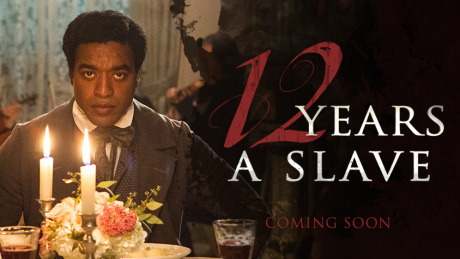
Solomon Northup, a free man, is kidnapped and sold into slavery in Steve McQueen’s 12 YEARS A SLAVE, based on a true story.
12 Years A Slave is one of *those* movies. One of those movies you want to see, yet dread to watch, concerning truths you know must be faced, and would perhaps prefer not to think about. It’s stark, and beautiful, and unflinchingly brutal. Director has made two other movies, Hunger and Shame. In both cases, he revealed not only an artists’s eye, but the ability to coax superior turns from his muse, fellow Irishman. In 12 Years A Slave, McQueen also showcases soulful performances from (Talk to Me) and , a stage actress making her feature film debut.
!2 Years A Slave is based on the memoir of Solomon Northup. Northup, a highly educated professional living in upstate New York, was kidnapped and sold into slavery. This makes the movie particularly accessible to a modern audience, since the protagonist wasn’t born on a plantation or subjected to the social conventions of life in the antebellum south. Solomon is like one of us, accustomed to earning his own living and being treated with respect. Finding himself in chains, he’s horrified to realize if he means to survive, and perhaps get back to his wife and children, he must never reveal that he can read and write, much less his true identity as a freeman. Of course, this proves almost impossible, given that his captors are ignorant and fatuous as well as cruel. An altercation with an insecure, uneducated overseer rips Solomon from his relatively safe position with Master Ford (), a “good” slaver who isn’t vicious or physically violent … yet has no moral qualms buying human beings. Master Ford sells Solomon to Edwin Epps (Fassbender), and on Epps’s cotton plantation, Solomon’s circumstances go from bad to incomprehensibly worse.
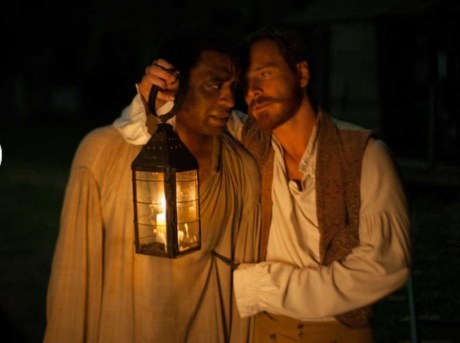
Solomon Northup attempts to survive direct questioning by the cruel Epps.
Epps, an alcoholic, is terrifyingly “hands-on” when it comes to his human chattel; it’s clear he relishes shifting from benefactor to tormentor and back again in sudden drunken lurches. Of particular fascination to him is Patsy (Nyong’o), his most talented cotton-picker, whom Epps calls “queen of the plantation.” Of course, after sundown, Epps creeps into the slave cabin to use Patsy another way. The on-screen rape is brilliantly written, acted, and shot. It’s a triumph for McQueen that he can present something so terrible and make it feel absolutely authentic, yet not a whit exploitative or unnecessary. And Fassbender’s performance is probably his finest to date.
I won’t spoil the film by telling you more. if you value movies about history, or social issues, or if you simply adore superb acting and direction, go see 12 Years A Slave.
Filed under: Michael Fassbender, Movies Tagged: 12 Years A Slave, Chiwetel Ejiofor, Lupita Nyong'o, Solomon Northup, Steve McQueen








November 1, 2013
I Watched THE COUNSELOR — So You Don’t Have To
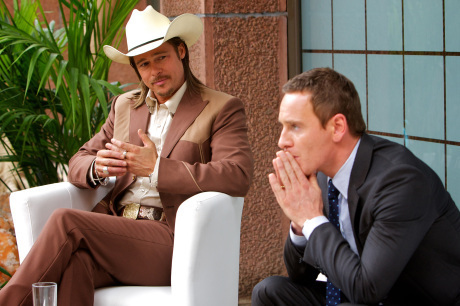
Brad Pitt and Michael Fassbender in Ridley Scott’s The Counselor.
It’s no secret I’m a big fan of . I’ve been looking forward to The Counselor, directed by , ever since early photos arrived from the set last summer. It sounded good: a lawyer decides to walk on the wild side, involving himself in a major drug deal with the intent of returning to his straitlaced life a few million dollars richer. But when things go wrong, he and his fiancee () face death at the hands of a vengeful cartel. In addition to Fassebender, Pitt, Cruz, and Scott, the movie boasts several other fine actors, all doing their best to sell what quickly proves to be a silly, self-important, pseudo-intellectual mess of a movie.
From the very first scene, we’re subjected to the sort of dialogue that might look pretty on the page, but sounds completely unconvincing when spoken aloud. The camera loves Fassbender and Cruz, and no one can blame Ridley Scott for lingering on them: in fact, it’s worth pointing out, the entire film is beautifully shot. If you came across it playing in a bar with no closed-captioning and you couldn’t read lips, you might think the movie would be worth checking out. But the sad fact is, you could get a bar full of drunks to redub the movie themselves using ad libbed dialogue and not only would it probably be more entertaining, it might actually make sense.
Fassbender’s character is, of course, the Counselor; he has no other name. This excruciating conceit leads to all sorts of super-stilted dialogue in which various people, including old friends, acquaintances, a mafia boss, and a Mexican drug lord, repeatedly say things like, “You’re in over your head, Counselor.” Or: “The world has changed for you, Counselor.” To which Fassbender’s character replies in three ways: stupid good humor, vague worry, or a soft, “Jesus.” Because the Counselor is an enigma– a lawyer who is unforgivably naive, a friend of drug lords who doesn’t understand that selling drugs can get you killed, and a man with inexplicable connections to the Italian mafia yet no street smarts–it’s difficult to care about him, or even miss him when he’s off-screen. You’d never guess the actor who was so compelling in Scott’s previous film, Prometheus, is this same fellow with the blank smile and (apparent) learning disability. Then again, in Prometheus (a movie with its own share of problems) Fassbender was playing a character, even if that character was an android. Here, he’s playing a suit.
The movie’s worst sin, however, is its long, long speeches that go nowhere and illuminate nothing. I have the suspicion the screenwriter wanted to out-Tarantino Tarantino, to create some movie moments like the “they call it Le Royale with cheese” bit from Pulp Fiction. Instead, we get weird pretentious dialogue that makes little if no sense:
“Greed pushes us to the edge.”
“No. Greed is the edge.”
And this:
“That’s a little cold, don’t you think?”
“I believe the truth has no temperature.”
Finally, there’s the pièce de résistance, a truly ghastly and pointless scene in which a drug dealer tells the Counselor how his girlfriend once … well, to use the sort of stilted dialogue the movie loves, “had congress with a conveyance of glass and steel.” I glanced around the theater to see if any of the women were preparing tp walk out, but they were all reading stuff on their phones. And I’ll admit, around minute six of this tripe, I tried to log into Facebook so I could post my derision. Alas–not enough bars.
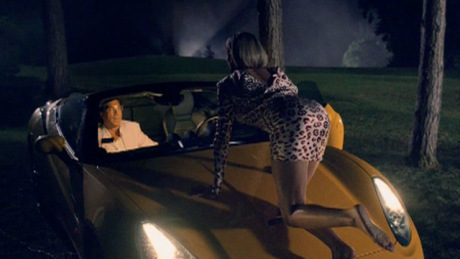
Trust me, you don’t want me to caption this still.
So what else can I say about The Counselor? Something positive? I’ve got it. It’s made me twice as eager to see 12 Years a Slave tomorrow … so Fass can redeem himself, and I can get this simpleminded nonsense out of my head.
Filed under: Emma Jameson, Michael Fassbender, Movies Tagged: Cameron Diaz, michael fassbender, Penelope Cruz, ridley scott, The Counselor








October 21, 2013
Doctor Sleep: A Novel by Stephen King … a review by Emma Jameson
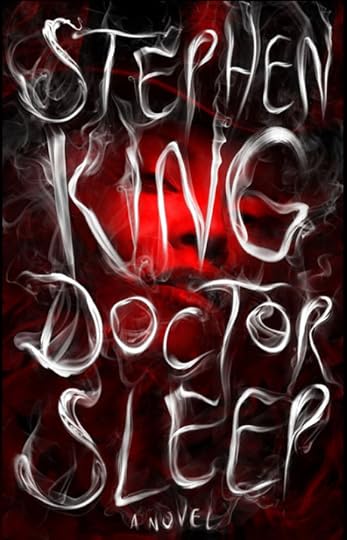
So first … a caveat. I almost never write book reviews. Think about it. As a novelist, when I write a review, that review arrives with a certain amount of baggage. And the questions that might crop up, as the review-train puffs into the station, can be excused as only human. Why did I write it? Am I propping up a friend? Dissing a competitor? Discharging some shadowy obligation?
So on this blog I feature new releases, and I mention them, and if the author is a personal friend, I mention that, too. But this is different. It’s a review from me, and suffice it to say, I am not blessed to call Stephen King a personal friend.
Having said that … for the last thirty years, you might say Danny Torrance has been a personal friend.
I read THE SHINING for the first time when I was 14. I re-read it several times during my teenage years. I can’t say precisely why, but THE SHINING was an intensely personal book for me. It taught me so much about writing characters, especially flawed, wounded, hopelessly striving characters. Because in many ways, it was more about poor, alcoholic, doomed-from-childhood Jack than his gifted five-year-old son, Danny.
Jack, a sensitive, intelligent child, watched his father, a hospital orderly and drunk, beat his mother at the dinner table until her eyeglasses landed in the mashed potatoes. That was the image that haunted Jack: those poor sightless specs, adorning a side dish while his alcoholic father vented his wrath. When he grew up, Jack escaped his dysfunctional family, teaching English at a prestigious prep school. even writing for publication.
But the ghosts of his past were not silent. They spoke. And Jack started to drink. The result–harm to a student, harm to his young son–drove him to take a last-chance job as winter caretaker for the Overlook Hotel. Another place filled with unquiet ghosts. Which ghosts were more real, and more deadly–the ones in the hotel, or the ones in Jack’s memory? That, dear reader, is up to you. (And if you’ve only seen the Stanley Kubrick film, I must urge you to read the original novel, because this review has nothing to do with Kubrick’s film. No disrespect intended, just a statement of fact.)
At any rate, most of the Western world has seen the movie, and knows Mrs. Torrance and her son Danny escaped the Overlook Hotel. But what happened next? Approximately thirty years later, Stephen King tells the tale.
Danny–now Dan– is twenty-something, beset by a terrible temper, and a drunk. The thing he swore he’d never become is the identity that consumes him. He drifts from town to town, content to deaden his telepathy (the shining) with booze, wishing himself dead. Then he hits bottom, a deeply humiliating bottom, and drifts to a town called Frazier, New Hampshire. There he has a chance to get sober, and to earn the friendship of a little girl called Abra. Once, Dan was the child in desperate need of an adult (Dick Hallorann) who understood. Now he is the adult called upon to help, and he can either live up to the calling or crawl back in the bottle.
I won’t waste time teasing you with further details. If you’ve read my description, you’re either in or you aren’t. All I can add is this. For approximately thirty years, I waited for news of Danny–Dan–Torrance, never expecting to get it. When I heard Stephen King had published a sequel, my first reaction was fear. This will ruin my vision of Danny’s future, I thought. It won’t be right.
But no. It was perfect. Perfectly conceived, perfectly edited, and perfectly laid down. If you loved THE SHINING half as much as I did, get yourself a copy of DOCTOR SLEEP.
–Emma Jameson,10/21/2013
Filed under: Books, Emma Jameson, ghosts, Kindle, Publishing Tagged: Abra Stone, Dan Torrance, Danny Torrance, Doctor Sleep, emma jameson, Stephen King, The Shining, True Knot








October 16, 2013
Florida Vacation Snaps, Part Two
Sandals abandoned.
South Beach on Marco Island has sugar white sands. Mind you, it’s not quite like Destin. Here the sand is crunchy with myriad shells and firmly packed, which is good for me — easier to walk on with my bad knee. But if Sting wrote a song about this beach, it would include the lyric:
Every step you take/
Every shell you break
The water is blue, not green like Destin’s, but the wave action is far gentler. Much better for swimming. Of course, yesterday I got a lot of exposure to everything that lives in the gulf, including bull sharks, tiger sharks, hammerhead sharks, and the occasional touristy alligator. But here’s the view from a lounge chair, with my gigantic werewolf feet on display:
The local businesses on Marco Island are gearing up for Halloween. CJ’s on the Bay put up a ghost and some spiders:

And here’s another sunset, this time from Mango’s, over a glass of Oyster Bay Sauvignon Blanc.
Filed under: Emma Jameson, Florida Tagged: beach, CJ's on the Bay, Florida, Gulf, Gulf of Mexico, Halloween decorations, Marco Island, South Beach








October 15, 2013
Florida Vacation Snaps
I’m having fun in South Florida, in the land of 10,000 Islands. Here are a few pictures:
Here’s the wreckage of an eco-house built in the 1970s. It’s marching into the sea, someday to submerge forever. Read more about it here.

The bay between Goodland Island and the Gulf of Mexico. This picture doesn’t begin to do justice to how peaceful and beautiful it was out there.
Shelling in the 10,000 islands is fun. I don’t think the green of the clear water really comes through in this picture.
More tomorrow, if I can get my silly phone to upload the images properly!!
Filed under: Emma Jameson, Florida Tagged: Florida, Goodland, Gulf of Mexico, Marco Island, Sugar Sand Beaches








October 13, 2013
New Release: SAY YES (Something More #2) by Tara West
Greetings from Florida!
I’m on vacation, but in typical nutty writer fashion, I’ve been getting more work accomplished here than at home. Go figure.
Here’s a couple of snaps:
So anyway, while I’m eating seafood, my good friend and fellow Eclective member, Tara West, has released a new book called SAY YES. It’s a New Adult romance, which means it’s concerned with characters in their early twenties. Here’s the cover:
“Andrés, why can’t it be enough that I love you? That I want to spend forever with you. Why must you expect so much more? I’m not ready for marriage and a family. I don’t know if I ever will be. “
“Christina, I need to know that what I’m putting into this relationship isn’t all for nothing. To me, you mean everything. But I won’t be your stepping stone. Because as much as it would kill me, if you refuse to commit to something more, I will walk away. “
Will Christina ever be ready? Will Andrés stay or walk? Will their love endure or is it doomed before they even have a chance?
Read the sample on Amazon or learn more about Tara West by going here.
Filed under: Eclective, Emma Jameson, Tara West Tagged: Florida, NA, new releases, Say When. Something More, Say Yes, Tara West, The Eclective








October 2, 2013
New Release: Kissed by Moonlight by Shea MacLeod
Hi, all. As some of you may remember, I’m a proud member of the Eclective … a group of diverse writers who put out free or bargain short story collections a few times a year. (Since it’s October, check out my short story “Safe” in the Eclective’s Haunted Collection – it’s a 100% free and proof I can write a scary Victorian yarn.)
Anyway, my good friend and fellow Eclective member Shea MacLeod has just released a new book about vampire hunter Morgan Bailey. Here’s the cover:
And here’s the blurb:
Bringing the Fairy Queen’s murderous brother to justice was supposed to give Morgan Bailey a little peace and quiet – at least as much as a vampire hunter ever gets. But two murders, a jail break, a price on Morgan’s head, and rumbles of paranormal war don’t bode well for rest and relaxation. Mix in the reappearance of mysterious “soul vampires,” and Morgan’s emotions are on the verge of melting down.
The hunt for the origins of the soul vampires takes Morgan and Jack, the local Sunwalker and former Templar knight, from the depths of the famous Shanghai Tunnels of Portland to Area 51 and finally the streets of the City of Lights. The truth they uncover in Paris leads to a new confrontation with the Fairy Queen, and the very real possibility they won’t get out of this one alive.
To learn more about Shea, check out her website. Here’s the lovely authoress, pictured below:
Filed under: Books, Eclective, Shea MacLeod Tagged: ebooks, Kissed by Moonlight, Morgan Bailey, new books, Shea MacLeod, The Eclective, vampire hunter








October 1, 2013
My London Trip, Part Two
More pictures and little bits and pieces.
I found this building in South London and immediately thought of Kate (formerly Wakefield, now Hetheridge). This is just how I imagined the flat she shared with Henry and Ritchie.

These terraced homes are exactly how I imagine Paul and Sharada Bhar’s home.
Beautiful architecture everywhere. Look at the figures up there. I snapped this during breakfast, telling my travel companion Rosemary that it looked like Aragorn and some hobbits up there.

I adore vistas like that. (It’s rather imperfect because Rosemary snapped it from the back of our cab as we sped toward the airport.) If I stare at this picture too long, I’ll start writing a story about it, and I can’t do that until I finish Black & Blue!
If only we’d had time to go in for a pint…
Filed under: Emma Jameson, London, Photos Tagged: black & blue, blue murder, emma jameson, Ice blue, London, lord & lady hetheridge, Lord Hetheridge, something blue








September 28, 2013
My London Trip, Part One
Hi, all!
High time I got back into blogging regularly. As I mentioned before, I took a whirlwind trip to London in March to see James McAvoy in MACBETH, onstage in London’s West End. For various reasons, my dear friend Rosemary O’Malley and I could only stay for 2 days. Still, we had the time of our lives, and can’t wait to return. Here are a few photos:
Rosemary took that great shot of the London Eye. I realize it’s pricey (we paid about $47.00 USD each) but it was stunning. The view from the Eye is simply remarkable: Big Ben, Houses of Parliament, Canary Wharf, Tower Bridge, and much more. Worth every penny to us.
Above is a shot I took while riding the Eye. You can see the reflection in the glass to the bottom right.
Me having a cuppa in Caffe Concerto in Piccadilly. (Where DS Bhar interviewed Thora and Griffin in Something Blue.)

The marquee for Jamie Lloyd’s Macbeth, which must have been commissioned far in advance. In the actual show, James has a full beard for a sort of wild Scot look. The reviews, which were gushing, called him a “Mad Mac.”
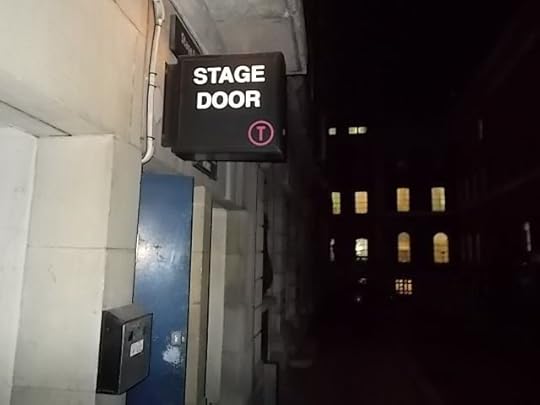
Ah, waiting outside the stage door for an autograph. First time in my life I’d ever done such a thing. I felt like a kid again.
Here’s Rosemary with the man himself. My picture turned out … disappointing. And as my gift to you, I’ll complain no more about it.
More pictures and a sneak look at Black & Blue (Lord & Lady Hetheridge #4) as soon as possible!
Filed under: Emma Jameson








Stephanie Abbott's Blog
- Stephanie Abbott's profile
- 12 followers





